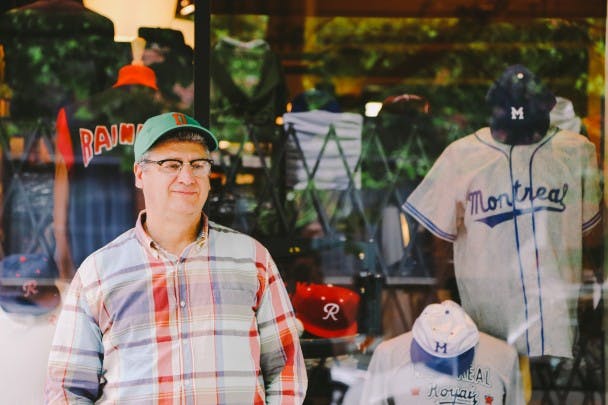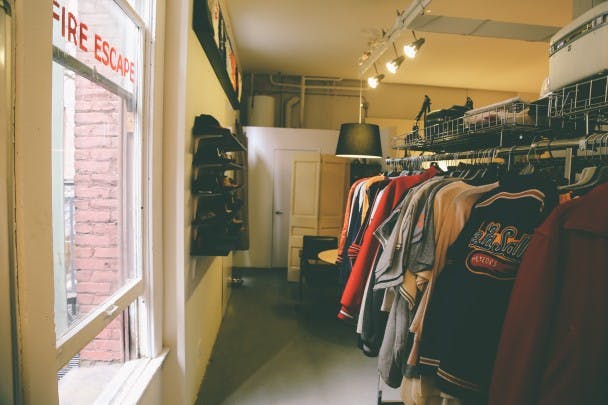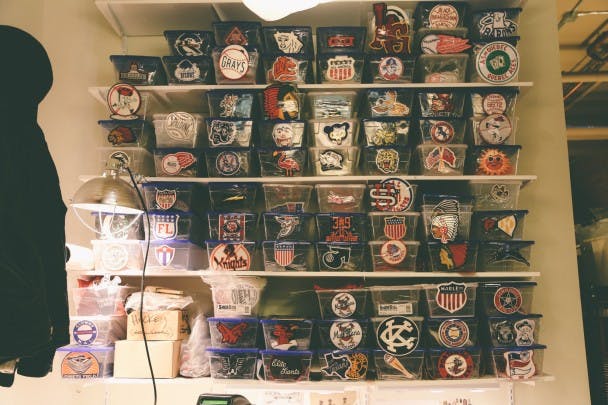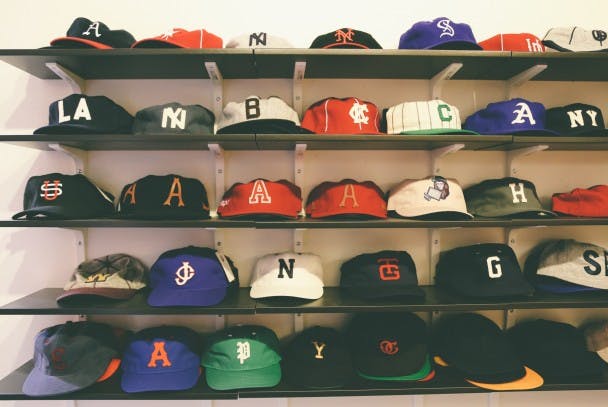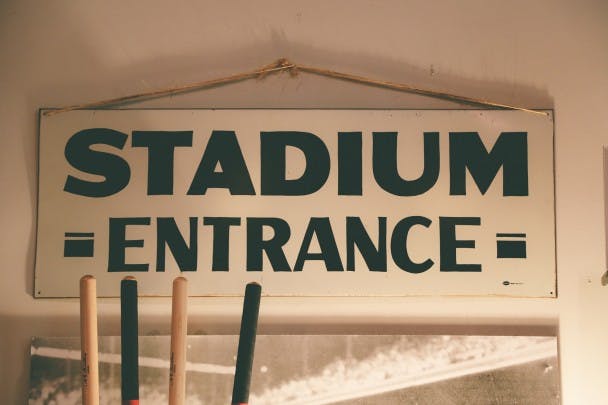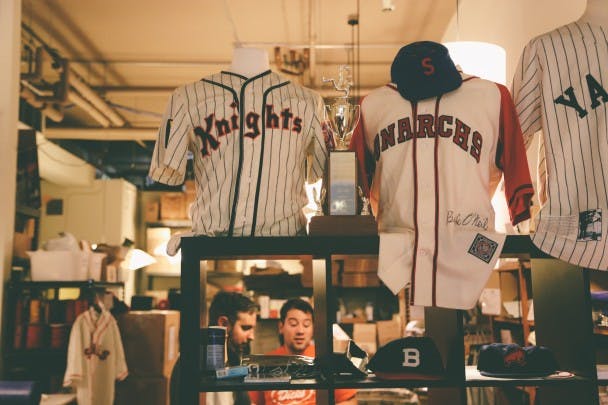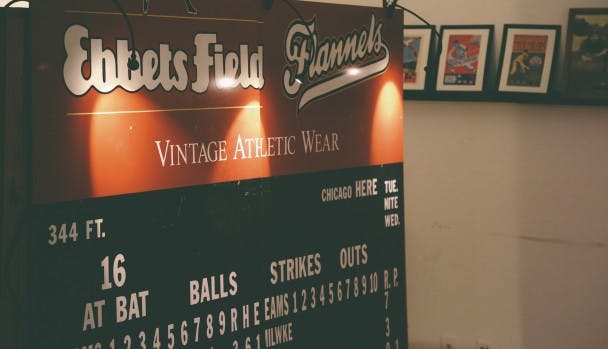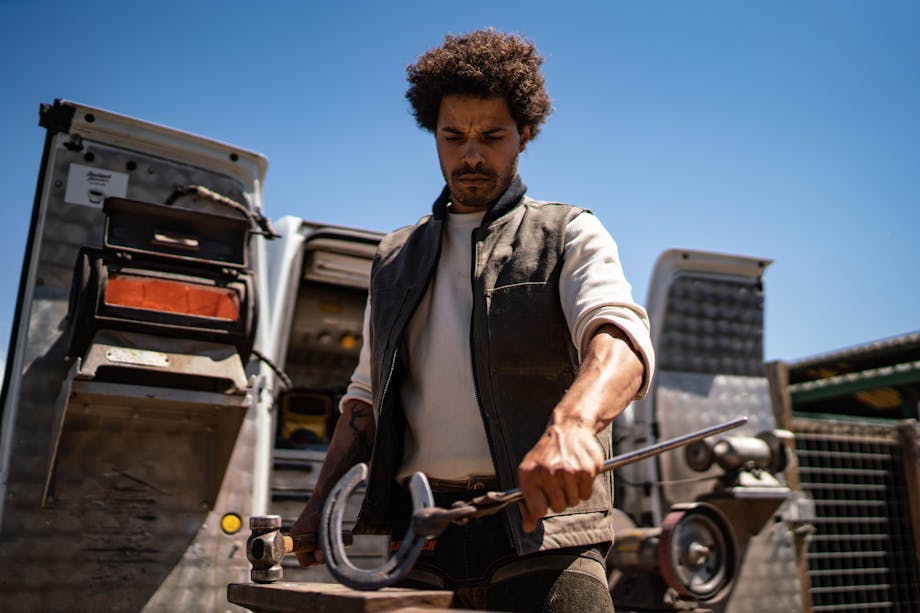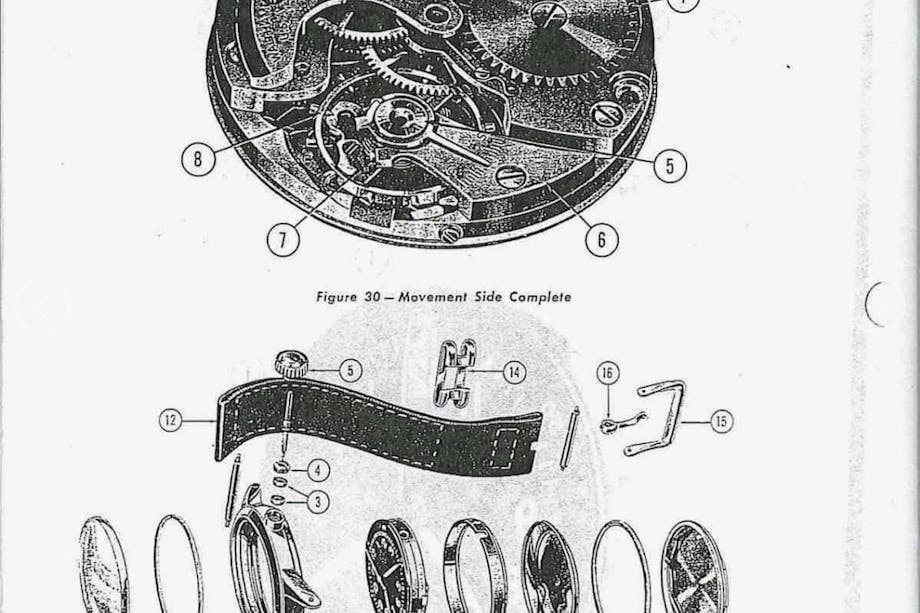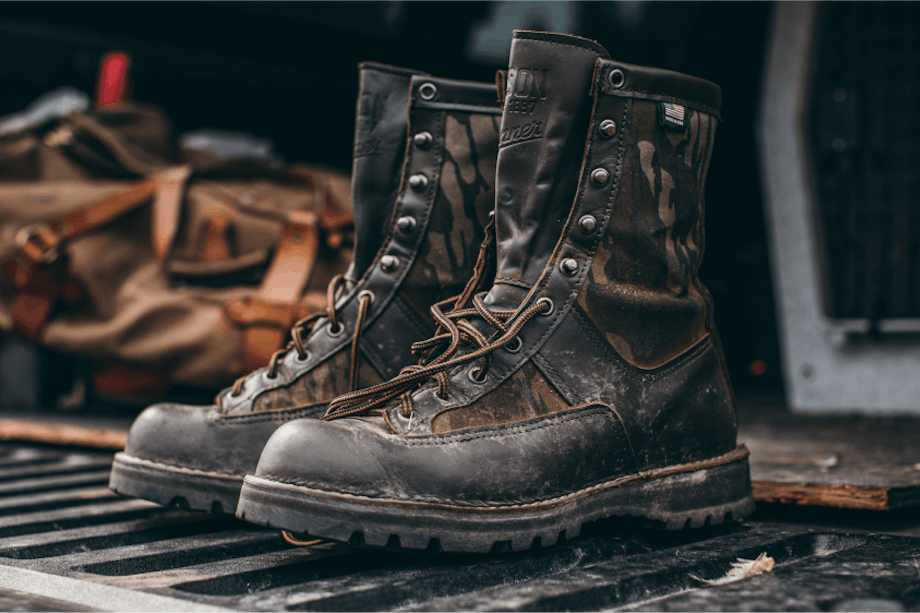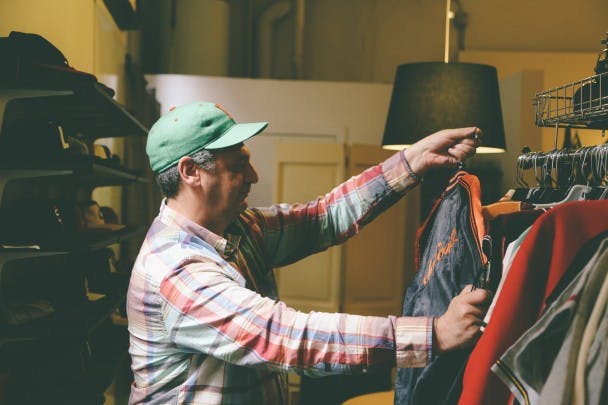 Ebbets Field Flannels has been a Pioneer Square mainstay for over 25 years. The iconic Seattle company manufactures historically inspired athletic apparel, ranging from wool baseball flannels to 8-panel caps, right here in America. Filson had a chance to catch up with owner Jerry Cohen and find out what separates Ebbets from the rest.
Ebbets Field Flannels has been a Pioneer Square mainstay for over 25 years. The iconic Seattle company manufactures historically inspired athletic apparel, ranging from wool baseball flannels to 8-panel caps, right here in America. Filson had a chance to catch up with owner Jerry Cohen and find out what separates Ebbets from the rest.
How long have you been running the company? What prompted you to open your doors?
This is our 25th Anniversary, this year. I was just a guy who wanted a wool baseball jersey, and nobody made them right. So, I got obsessed, and my obsession turned in to a business. I had to eventually decide if it was going to be an unhealthy hobby or attempt to do a business. I made shirts for myself and other people wanted them, that’s what led me to start the company.
How was your interest in uniforms formed and shaped?
Childhood, really. I don’t know why, but I loved the graphics. Back in the 60s, when I grew up, it was a much simpler game. There were far fewer changes year to year. It wasn’t done like it is today with big marketing consulting companies designing logos and color schemes. So, I developed a really good eye for the traditional look of baseball uniforms. But not just baseball, I loved football helmet logos in the NFL, and it was just a little bit of an obsession as a little kid. And I still sort of have that eye. I can look at old pictures and logos and translate that in to contemporary products.
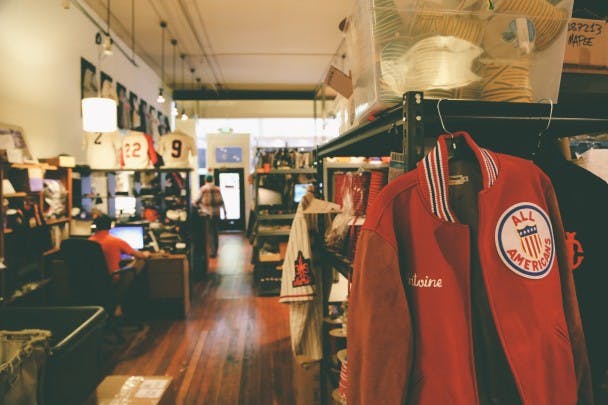 What separates Ebbets from other companies?
What separates Ebbets from other companies?
One thing is the ‘integrity’ of what we do. We don’t follow trends, and we aren’t sitting around thinking of how we can create something to fit the current fashion market. We look at history as our guide. And we see ourselves as archivists, and people who are trying to bring things forth out of history and turn it in to a living thing as authentically as possible, with as little interference from the original thing to the wearable item today. That’s not what always gets us the biggest selling product, but I think it’s what people respect and like about the brand.
What’s your favorite uniform or flannel in your collection?
The favorite is always what I’m working on. Today, as it happens, I’m working on this very bizarre jersey worn by the Denver Bears in the early 50s, when the owner decided he wanted to make the uniform reflect the strike zone. So, he had a contrasting top to the jersey, and white below it so the white area was a strike — supposedly — and the blue areas were a ‘ball.’ It was the only time anyone ever did that. We’ve never made it, I’ve been aware of it for 20 years, but we’re actually going to try and make that one now. That’s my favorite today.
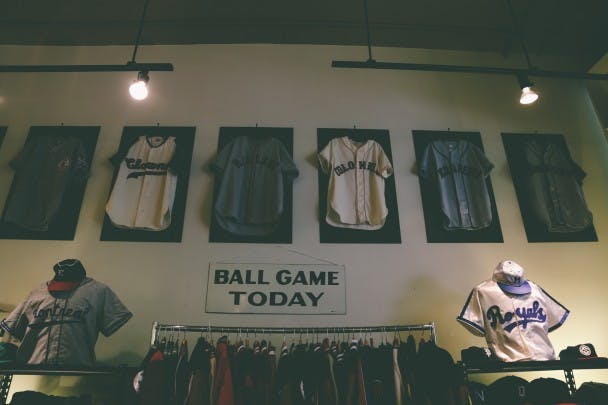
Why are you committed to hand-crafting goods and manufacturing in America?
We always have been — and now it’s a trend which is appreciated. But we’ve done it both out of a commitment to doing it that way, and also out of necessity. In the early days, we didn’t have the volume. We had to fight against the grain of what apparel manufacturers were doing in the late 80s and early 90s. Everybody was going off-shore and was going towards mass production and we were trying to bring back craftsmanship. So, it was a constant tension to get things made. We’d go to a factory, and they’d say, “Why would you want to make this old stuff, why not make this? We could make 3,000 hats a day.” We don’t want to make 3,000 hats a day, we want to make 30 hats a day that are really, really good. We’ve never vacillated or varied from that approach.
Do you have any advice for people trying to follow their passions?
If you have a great idea, don’t let people put you off it. When we started, I had a lot of people saying that it’d be too hard — that we should just make t-shirts with old team logos on them. Fortunately, I’m very stubborn, and didn’t listen to anybody. If you really know what you want to do, at least carry that belief forth enough to see it fail or succeed on it’s own merit, before you start listening to a lot of people and watering it down.
And, respect the process of business. It’s one thing to have a great idea, but you have to learn business. You have to learn the ebb and flow of running a company. So, don’t ignore that. Without the business skills to go with the craft you’re just a guy that can make something, opposed to an entrepreneur.
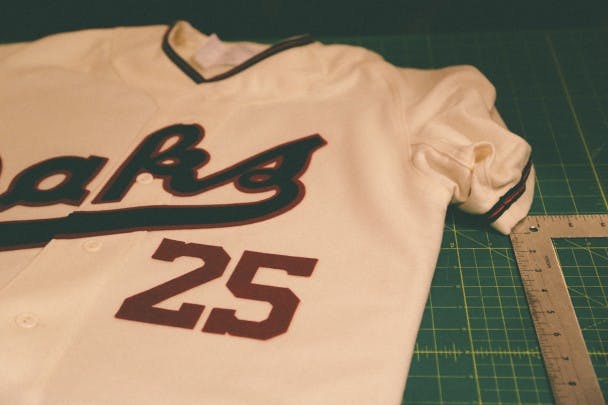 If you weren’t working with Ebbets what would you be doing? Where would we find you?
If you weren’t working with Ebbets what would you be doing? Where would we find you?
I’d be playing guitar in The Rolling Stones [laughs]. You want to know what I’d really be doing or what I’d love to be doing? I really think this job was made for me. I didn’t do well with formal education, and I don’t like being told what to do. So, fortunately, I had an unique ability to do this. I don’t like to think about what I’d be doing if I couldn’t make a living at this. It would be pretty tough.
Any final comments?
I think it’s really refreshing and exciting to see the resurgence in American manufacturing. It’s just a radical change from when we started, and the flow was going the exact opposite way. To see it come back, and to see people get interested in actually making things is really a gratifying thing. We held out for a long time, even when it was very hard doing things that way, and we’re not alone anymore.
